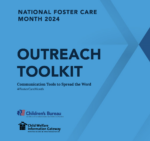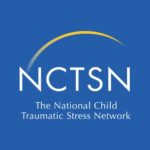Prevention & Intervention
- Alcohol and Drugs (24)
- Behavior Management (21)
- Bullying (70)
- Cyber Bullying (46)
- Foster Youth (43)
- Gangs and Violence (29)
- Homeless and Runaway Youth (16)
- Mentoring Programs for Youth (25)
- Safety (57)
- School Counseling (20)
National Foster Care Month (NFCM) is an initiative of the Children’s Bureau that seeks to increase national awareness of foster care issues. Each May, we take time to recognize the important role that people from all parts of child welfare play in supporting children, youth, and families. This year, join us as we raise awareness about this year’s theme: “Engaging Youth. Building Supports. Strengthening Opportunities.”
April is nationally recognized as Child Abuse Prevention Month. Help prevent child abuse by downloading the contents below and sharing them with your children.
This Child Abuse Prevention Month Toolkit features printouts, worksheets for parent and child, videos, a Powerpoint presentation, hotlines to call, signage, and more.
The National Center for School Safety offers toolkits and guides that are detailed resources that provide you with the research, best practices, and frameworks you need to effectively administer school safety initiatives. These include creating comprehensive school safety plans, threat assessments, mental health, school climate, and more resources.
The National School Safety Center, state governors, and state school superintendents sponsor America’s Safe Schools Week annually in October.
School safety includes keeping campuses free of crime and violence, improving discipline, and increasing student attendance. Schools that are safe and free of violence, weapons, and drugs are necessary to ensure the well-being of all children and the quality of their education.
The most important strategy is to place school safety on the educational agenda. This includes developing a safe schools plan – an ongoing process that encompasses the development of district-wide crime prevention policies, in-service training, crisis preparation, interagency cooperation, and student/parent participation. These ideas are primary strategies to help inform, persuade, and integrate school safety and public opinion. These ideas will facilitate planning and the implementation of the remaining strategies.
MENTOR’s Becoming a Better Mentor: Strategies to Be There for Young People is a free resource written by experts in the field to benefit any adult looking to support young people. Full of real-world advice and evidence-based strategies, it provides mentors with tangible strategies to “be there” for young people in their various life journeys and teaches them about the core skills, key principles, and critical practices of mentoring, such as:
mindsets and attitudes that lay the foundation for a strong mentoring relationship;
basic information about youth development and typical mentoring relationship cycles; and
critical skills and competencies to grow and refine to meet the needs of youth.
“Seven Positive Strategies for Managing Aggressive Behavior in Young Children” is an article published by Kidpower to help adults in effectively managing aggressive behavior in young children.
Our mission is to build youth power in marginalized communities throughout the nation and encourage legislative advocacy to prevent gun violence, while shifting public discourse towards an evidentiary approach to keeping schools and communities safe.
There are many reactions that are common after mass violence. These generally diminish with time, but knowing about them can help you to be supportive, both of yourself and your students.
Ideal interventions promote the evidence-based principles of Psychological First Aid (PFA), including: safety calming, self- and community-efficacy, social connectedness, and a sense of hope/optimism. Information relevant to this event and links to brief, easy to read, action-oriented education fact sheets are provided in the link below.
It is important to manage our response to mass shootings so we are able to care for ourselves, our families, and our communities. Here are steps to help people cope more effectively with stress after a mass shooting.
Basic tips for how to talk with a child of any age about gun violence.
This guide offers advice on how to talk to children about tragic events, such as shootings and terrorist attacks, that they are likely to hear about at school and/or on the news.








